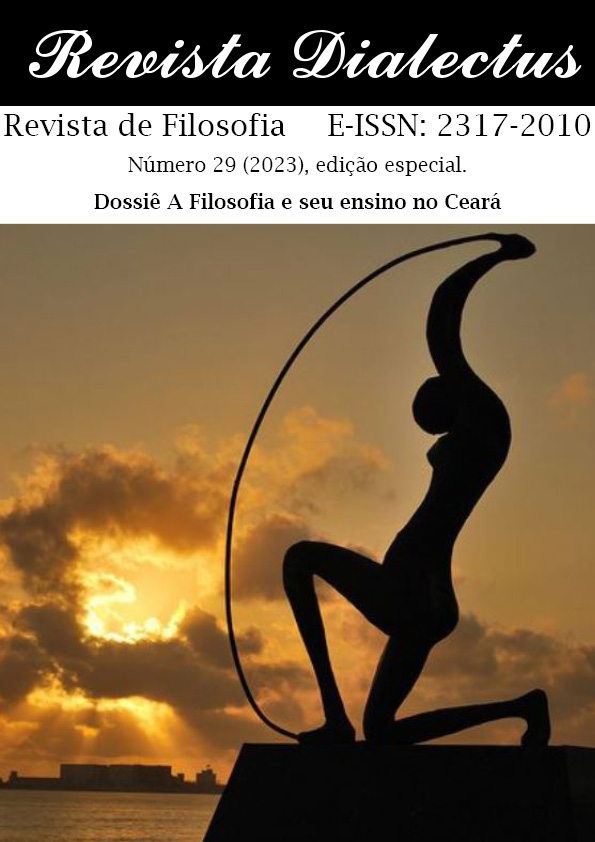A FILOSOFIA PLATÔNICA ENTRE O ECLETISMO DE PLUTARCO E O CORPUS HERMETICUM
DOI:
https://doi.org/10.30611/2023n29id91343Keywords:
Religião egípcia, Filosofia grega, Plutarco, Ecletismo, PlatonismoAbstract
Este presente artigo tem por objetivo fazer considerações acerca da origem tardia do Corpus Hermeticum, assim como seu possível desenvolvimento, a partir do caldo multicultural e das similaridades religiosas entre as escolas filosóficas da Grécia clássica e helenística, em específico por influência direta de Pitágoras e de Platão, por meio de Plutarco, da escola eclética e de certa influência indireta das escolas do oriente, em específico a egípcia, na tentativa de revelar a possível, mas bem provável, origem posterior ao séc I dos escritos conhecidos como Corpus Hermeticum. Essa conjunção de escolas de pensamento, podem ter tido o efeito em comum e uma possível responsabilidade de formarem, ou até mesmo de servirem como agente acelerador, do pensamento filosófico grego pré-socrático, que irá influir diretamente no pensamento clássico e helenístico.
References
BALMES, Jaime. História da Filosofia. Rio de Janeiro: Ed. CDB, 2022.
BUKKYO, Dendo Kyokai. A Doutrina de Buda. 3° ed. São Paulo: [s. n.], 1982.
HERMES, Trimegistum. Corpus Hermeticum. Tradução, edição, introdução e notas de Américo Sommerman. São Paulo: Polar, 2019.
HERÓDOTO. Histórias. Livro II – Euterpe. Tradução, introdução e notas de Maria Aparecida de Oliveira Silva. São Paulo: Edipro, 2016.
PLUTARCO. De Ísis e Osíris. Maria Aparecida de Oliveira Silva. São Paulo: [s. n.], 2022.
Downloads
Published
Issue
Section
License
Authors who publish in this journal agree to the following terms:
- Authors retain the copyright and grant the journal the right of first publication, with the work simultaneously licensed under the Attribution-NonCommercial-NoDerivatives 4.0 International (CC BY-NC-ND 4.0) License, which allows the non-commercial sharing of work, without modifications and with acknowledgment of authorship and initial publication in this journal.
- Authors are authorized to take additional contracts separately, for non-exclusive distribution of the version of the work published in this journal (eg publish in institutional repository or as a book chapter), with acknowledgment of authorship and initial publication in this journal.
- Authors are allowed and encouraged to publish and distribute their work online (eg in institutional repositories or on their personal page) at any point before or during the editorial process, as this can generate productive changes as well as increase the impact and citation of published work (See The Free Access Effect).



















